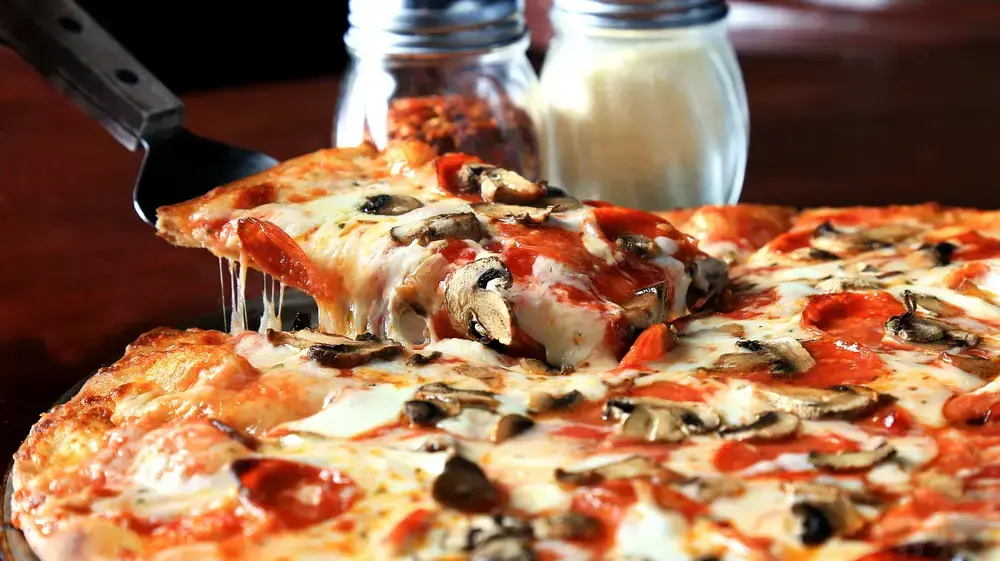- health
- Nutrition and diet
Did you eat a whole pizza tray? According to this study, it's just fine
Researchers have examined what happens to our body after one event of eating without limits. Familiar? This evening - after days of careful nutrition - where you eat from everything that comes near and get up in the morning full of remorse. The results are encouraging
Tags- diet
- eating
- Food
- pizza
Walla! health
Thursday, 06 August 2020, 12:17Anyone who adheres to a healthy and balanced diet knows this day when all the rules are broken. This could be going out with friends, ordering a nightly pizza or a particularly pampering family meal. On a day like this - some call it a cheat day, you eat whatever you want without thinking twice. Because we all have days like this sometimes, researchers have decided to examine how they affect our body and how much damage they actually cause. The results, thankfully, are encouraging, and make you crave pizza.
More on Walla! NEWS
We found all the (health) reasons to eat another pizza triangle
To the full article
The researchers found that no harm was done to a disposable binge, as long as it did not become a habit. According to a study published in the British Journal of Nutrition, such a one-time binge eating disorder does not affect blood glucose levels, and only slightly increases the amount of fat in the bloodstream after eating.
14 volunteers and a lot of pizza
While everyone is familiar with the harms of overeating and obesity, few studies have been done so far on the effects of overeating. So the researchers decided to recruit a group of volunteers and feed them unlimited pizzas. 14 men aged 22 to 37 volunteered for the mission. During the first session they were asked to eat pizza until they were seventy, but not blown up. At the second session they were asked to eat pizza until they were no longer physically able to take another bite. The researchers found that participants consumed twice the amount of calories in the second session (eating as much as you could), although the amount of pizzas eaten varied greatly between participants.
More on Walla! NEWS
- This is why you can not say "no" to pizza
- Scientists have come up with the trick that will make you eat much less
- Does one day of "cheating" a week ruin your diet?
- Feeling armchair sweet potatoes and wanting to make a change? Get acquainted with the revolutionary swimming method
The researchers measured participants' blood glucose levels four hours after they finished eating and found that they were not higher after the session in which they ate indefinitely compared to the session in which they ate reasonably. Blood fats, such as triglycerides, were slightly higher than normal after overeating, but even this increase was not proportional to the amount of excess fat consumed during the meal.
The subjects' insulin levels in the blood were 50 percent higher after the excessive eating experiment, which probably explains how the body manages to keep blood glucose levels balanced after such a high calorie intake. After the session where the volunteers ate the exaggeration, various hormones released by the intestines were discovered in their blood in order to stimulate the release of insulin and promote full sensations.
"The study shows that if a healthy person occasionally overdoses, for example eating a large buffet lunch or Christmas lunch, it has no immediate negative consequences in terms of losing metabolic control," said Professor James Batz of the University of Bath who oversaw the pizza research. He added that "the main problem with overeating is that it adds more stored energy to our body (in the form of fat), which can reach the point of obesity if eaten like this day after day."
While the results of this study make it a little easier to blame those cheating days, it is important to remember that the main goal should always be balance. The binge eating attacks in many cases are simply a nickname for an obsessive-compulsive eating disorder called Binge Eating Disorder which is very common in the Western world. This disorder manifests itself in uncontrolled binge eating as part of eating large and unconventional amounts of food - far beyond satiety. Unlike the study in question, these are not individual events, but seizures that recur every so often.

